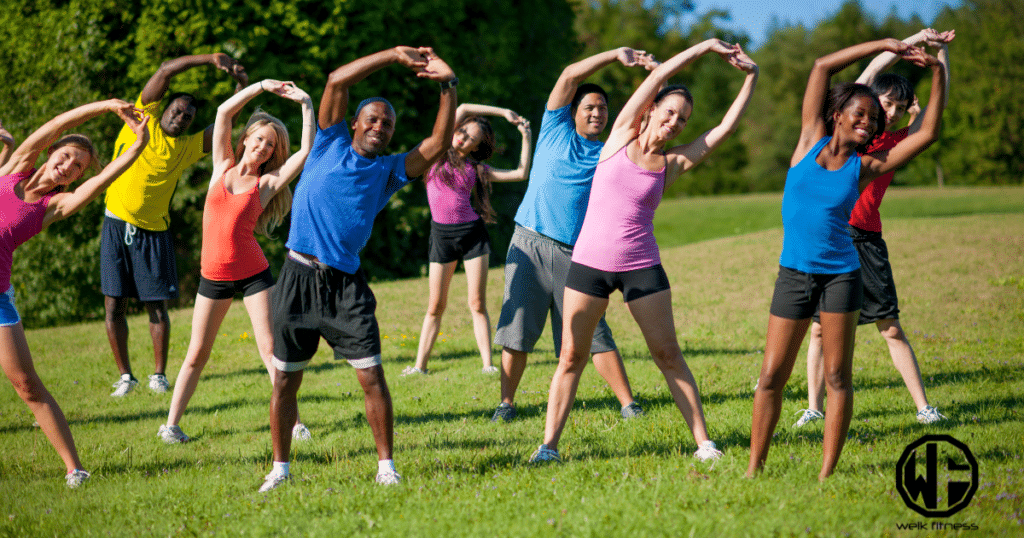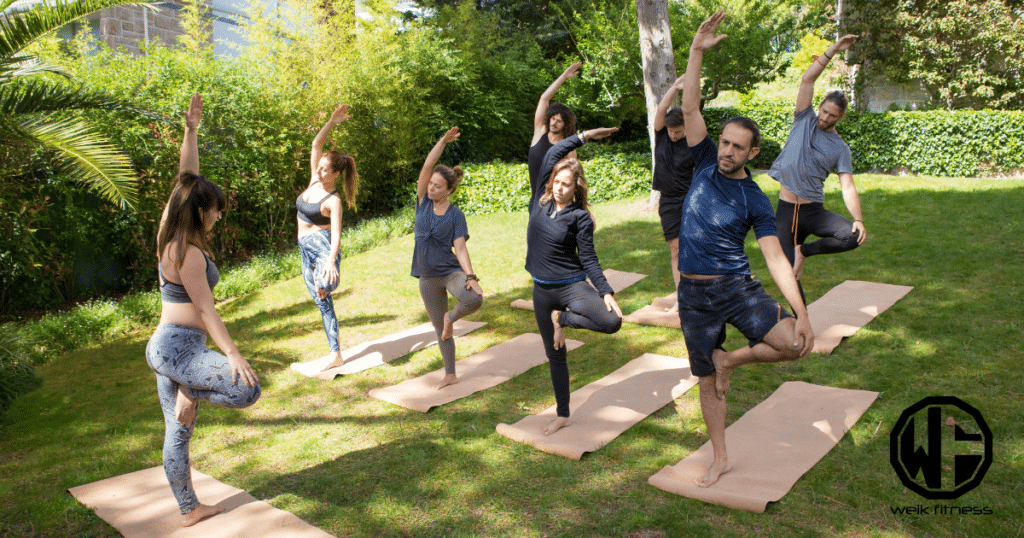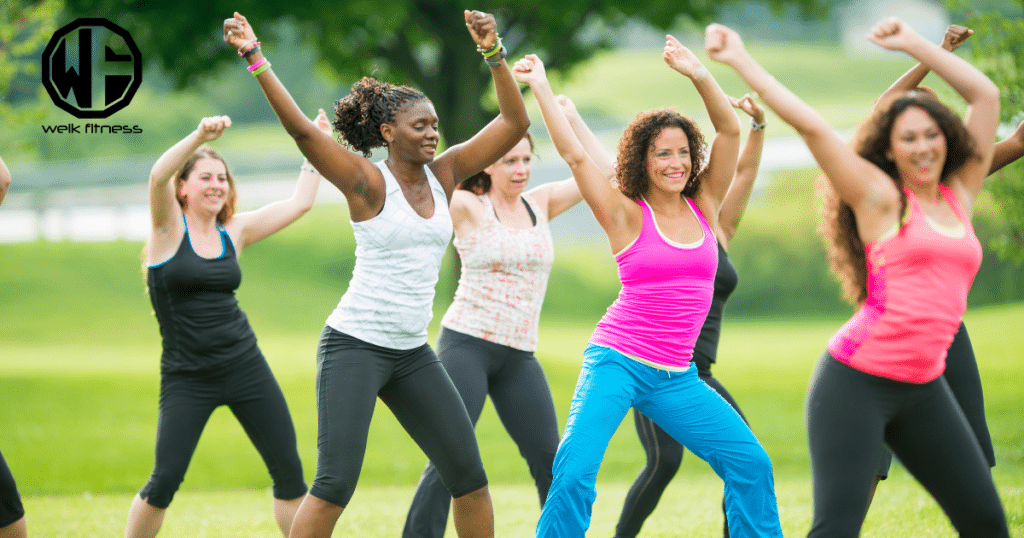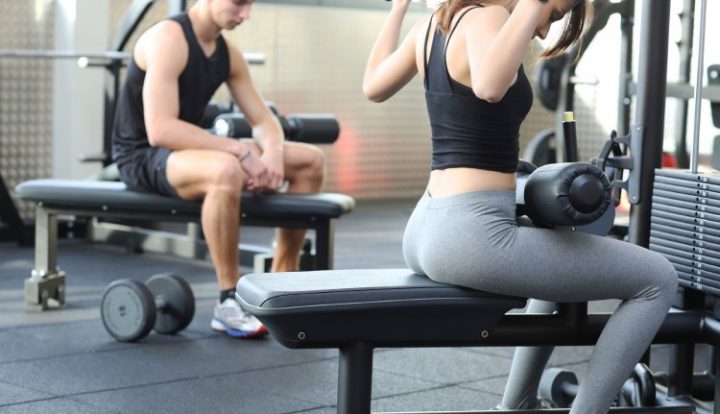Coming to America… FREE Fitness Programs?
We have an obesity epidemic on our hands here in the United States, and it doesn’t appear that it’s going to slow down anytime soon. Are we on the verge of destroying our own population due to illness and disease? Or will we finally wake up and take our health seriously as a country? Brazil seems to be taking a step in the right direction with their population by offering free fitness programs.
Disclaimer: This article is for informational purposes only and is not meant to treat or diagnose any condition. It is recommended that you speak with your doctor before starting any exercise program, changing your daily nutrition, or adding any supplements to your regimen.
Table of contents

Brazilian Government Created Free Fitness Programs
In order for Brazil to help out their people, the government has created free fitness programs for everyone to take part in. While research is showing that mainly women are jumping on board, it’s still a step in the right direction none the less. And it’s something more places around the world should think about implementing.
One of the researchers stated, “To combat rising obesity rates, the Brazilian government created the Academia das Cidades program, or City Academies, to give residents free access to fitness facilities and instructors. The program is aimed at adults, but has historically attracted middle-aged and older women who may not frequently exercise. Our research team studied the effectiveness of this program; we found that City Academies do meet their goal of increasing physical activity rates for adult women in these communities.”
The program itself is geared towards adults and is aimed at helping them lose weight though a government created program. This program was started in 2002 and is now in 184 cities throughout Brazil. People are encouraged to take advantage of these free classes by attending scenic public spaces designated in different cities. Classes are in parks or plazas where the public is able to exercise in the sunlight and enjoy the experience. Along with the class, participants are also given free dietary guidelines to help them lose weight.
One of the researchers mentioned, “With the program, we found a large increase in the population’s activity levels, especially for women. Worldwide and in Brazil, multiple surveys show that men are more active than women, education is directly related to leisure-time physical activity, and individuals of low socioeconomic status are less likely to engage in physical activity. Our study shows that these exercise programs help reduce those inequalities in physical activity. They may serve as a model for other communities and countries around the world to tackle the pandemic of physical inactivity.”
How Could We Start Free Fitness Programs Here in the US?

Starting free fitness programs in the US can be a rewarding initiative that promotes community health and wellness. However, there’s a lot of planning we’d need to do in order to get started and actually pull it off. Below are some of the considerations and planning we’d need to overcome:
1. Planning and Research
Identify Target Audience
- Determine who you want to serve (e.g., seniors, kids, general public).
- Consider their specific fitness needs and preferences.
Research Existing Programs
- Look into similar initiatives to understand what works and what doesn’t.
- Identify gaps that your program can fill.
2. Designing the Free Fitness Programs
Define Objectives
- Set clear, measurable goals (e.g., improve community health, provide accessible fitness options).
Choose Fitness Activities
- Select a variety of activities to cater to different fitness levels and interests (e.g., yoga, Zumba, boot camp).
Schedule and Frequency of the Free Fitness Programs
- Decide on the frequency (daily, weekly) and duration of the free fitness programs.
- Consider the best times for your target audience (e.g., evenings for working adults).
3. Location and Equipment Needed for the Free Fitness Programs
Find Suitable Locations
- Public parks, community centers, schools, or local gyms might offer free or low-cost space.
- Ensure the location is accessible and safe.
Equipment Needs
- Start with minimal equipment; bodyweight exercises or activities like running require no equipment.
- If necessary, seek donations or partnerships for equipment.
4. Partnerships and Sponsorships
Local Businesses and Organizations
- Approach local businesses for sponsorships or partnerships.
- Consider collaboration with health organizations, gyms, or sports clubs.
Grants and Funding
- Research grants available for community health initiatives.
- Apply for funding from local government or health organizations.
5. Instructors and Volunteers
Recruit Qualified Instructors
- Look for certified fitness instructors who are willing to volunteer their time.
- Local fitness enthusiasts or trainers might be interested in giving back to the community.
Train Volunteers
- Train volunteers to help with class setup, registration, and participant support.

6. Marketing and Promotion
Use Social Media
- Create social media pages to promote the free fitness programs and engage with the community.
- Post regular updates, success stories, and fitness tips.
Community Outreach
- Distribute flyers, put up posters in local businesses, and advertise in community newsletters.
- Partner with local schools, libraries, and community centers to spread the word.
7. Registration and Attendance
Simplify Registration
- Use online platforms (e.g., Eventbrite, Google Forms) for easy registration.
- Offer on-site registration for those less tech-savvy.
Track Attendance
- Keep a record of attendance to understand engagement and improve the free fitness programs.
8. Legal and Safety Considerations
Liability Waivers
- Have participants sign liability waivers to protect organizers from potential lawsuits.
Safety Measures
- Ensure a safe environment and have first aid supplies on hand.
- Consider having CPR-certified volunteers or instructors.
9. Feedback and Improvement
Gather Feedback
- Regularly collect feedback from participants to understand their needs and preferences.
- Use surveys or informal conversations to gather input.
Continuous Improvement
- Adapt and improve the free fitness programs based on feedback and attendance trends.
- Stay updated with new fitness trends and incorporate them into your classes.
10. Sustainability
Long-term Planning
- Plan for the long-term sustainability of the program by securing ongoing funding and partnerships.
- Regularly review and adjust the free fitness programs to ensure it continues to meet community needs.
Would Free Fitness Programs Work in the United States?

Unfortunately, I don’t believe so.
In fact, I’m pretty sure that 85% of the population wouldn’t even try it once. We are in denial here in America. We look to our left and right and see people in worse physical shape than us and we think we “aren’t that bad.” When in reality, according to statistics and guidelines, these people are considered overweight or obese.
We seem to have changed our standards over the years where being overweight is acceptable and is the new norm. There is no ideal body weight in their eyes anymore. And that’s not to say that overweight or obese individuals aren’t good people, it’s just they’re only fooling themselves. The risk factors involved in living the lifestyle they do is like lighting a fuse and waiting for the bomb to go off at some point. Sooner or later illness and disease will become a reality for these individuals.
Adhering to an exercise program can be difficult, but you’ll find it’s not as difficult if you make health and fitness a priority. Through a free exercise program similar to what Brazil implemented, I still don’t see people jumping on board. Everyone has excuses why they can’t workout—they don’t have time, they don’t have the money, they don’t have the motivation, they don’t see themselves as unhealthy, they feel fine, etc. No one wants to take responsibility for their health and even if they are healthy without exercising (maybe they are active at work and eat healthy) they don’t feel the need to engage or start a program.
Will some people give it a try? Sure. It’s FREE and people like FREE. Again, this is forward thinking if the United States government would implement such a program. Would people adhere to the free fitness programs? Maybe some would.
We have to remember too that based on the location of these classes, the weather isn’t always nice enough to be able to have it in outdoor public places like Brazil is using. Our country for the most part has all 4 seasons to some degree. Obviously, an outdoor program would not be feasible with snow on the ground. Such a program would probably need to be made available indoors for it to be successful, and therefore a local gym or another large venue would need to be on board to house the program.
Sources:
Eduardo J Simões, Pedro C Hallal, Fernando V Siqueira, Chester Schmaltz, Danielle Menor, Deborah C Malta, Hebe Duarte, Adriano Akira Hino, Gregore I Mielke, Michael Pratt, Rodrigo S Reis. Effectiveness of a scaled up physical activity intervention in Brazil: A natural experiment. Preventive Medicine, 2016; DOI: 10.1016/j.ypmed.2016.09.032
University of Missouri Health. “Availability of community-based fitness classes leads to increased activity levels.” ScienceDaily. ScienceDaily, 13 December 2016.
Latest Articles:
- What Makes the Best Electrolyte Supplement for Athletes?
- Is The Smart DryFireMag the Best Option for Dry Fire Practice?
- Do You Need a Survival Fishing Kit in Your Bug Out Bag?


*Disclosure: This article may contain affiliate links or ads, which means we earn a small commission at no extra cost to you if you make a purchase through these links. These commissions help support the operation and maintenance of our website, allowing us to continue producing free valuable content. Your support is genuinely appreciated, whether you choose to use our links or not. Thank you for being a part of our community and enjoying our content.
PLEASE CONSIDER SHARING THIS ON YOUR SOCIAL MEDIA TO HELP OTHERS LEARN MORE ABOUT THIS TOPIC.








